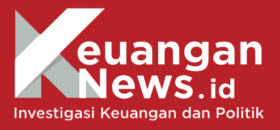By: Irfan Syauqi Beik; Sharia Economic Observer FEM IPB
KNews.id- Recently, the public has been presented with a very interesting discourse regarding Muhammadiyah’s plan to withdraw funds from the merger bank, BSI (Bank Syariah Indonesia), and establish a new Sharia bank. This is based on concerns the larger the size or size of sharia banks, it will further leave UKMK that are in fact the majority of Muslims.
If UKMK are abandoned, it will further enlarge the space of injustice and the gap between the group the have and the group has not. However, this growing discourse needs to be managed properly, especially in terms of communication so as not to cause misperceptions of the public so as to potentially cause counter-productive things.
This is because all parties involved in this public discourse basically have excellent and noble intentions and ideals, which are based on the spirit of defense against the economic condition of the people.
On the one hand, the emergence of the above concerns reflects a strong concern for the importance of maintaining impartiality in UKMK. It is unlikely that intrinsic welfare will be achieved when UKMK do not get fair access to financial resources.
On the other hand, the merger process also has a very noble goal, namely to give birth to sharia banks that are stronger, efficient, globally competitive, and at the same time have partiality to the economic development of the people. The end is expected to be the catalyst for the growth of the national Islamic banking industry, so that the market share of Islamic banks can increase and its benefits for the community are increasingly felt.
This is where the importance of bridging communication so that the main message of this discourse can be captured by the public well. If the communication process is not properly managed, the author is worried that it will give rise to the misperception of BSI, which in the end has the potential to pose systemic risks when the withdrawal of funds actually affects the public psychological to do the same, namely withdrawing funds from BSI. Of course we do not want this to happen because it can reverse the national islamic banking industry in the past few years.
However, this does not mean hindering the right of a person or one institution to establish a sharia commercial bank (BUS). Anyone has the right to set up and own a BUS as long as it meets the requirements of applicable laws and regulations.
The author is certainly very supportive if there is an Islamic organization that wants to set up its own BUS. This will further enrich the treasures of the national Islamic banking industry and will further strengthen the extraordinary contribution of Islamic organizations to the economic progress of the people.
Most importantly for the author, the frame that must be maintained is the spirit of ukhuwah and support each other. Although sharia banks compete with each other, but the competition in order to fastabiqul khairat.
That is, this competition is not only at the level of technical services of Sharia banking, both funding, financing, and technology services, but also in the competition in transforming Sharia values in the nation’s economy. Values based on the noble teachings of Islam.
As for the defense of UKMK, of course this burden can not be carried alone by sharia banks. It requires collaboration between parties, both among the Islamic financial industry itself, the government, legislative institutions, universities, and other strategic stakeholders including the general public. Also no less important is the involvement of zakat and waqf institutions, so that this collaboration runs well and effectively.
In this context, CIBEST IPB study (2016) has classified the types of community businesses into three categories, namely zakatable, microbankable,and bankable. In the zakatable category,this is a portrait of ultramicro and micro enterprises that are on the basis of poverty, so that empowerment is needed through zakat, infak, alms, and waqf funds.
Sharia banking does not need to enter this segment by conducting commercial sharia financing, except to channel its ziswaf and CSR through amyl and nazir institutions. Ammil and Nazirlah institutions are responsible for coaching and increasing the capacity of this category of business in order to be able to move up the class to microbankable.
In the microbankable segment,of course, Sharia financial institutions that can serve, in addition to Islamic social financial institutions (Ziswaf) are sharia cooperatives / BMT and Sharia banking, both BPRS, UUS, and BUS. It also does not close the possibility of the emergence of financing schemes involving other non-bank LKS such as sharia multifinance and sharia fintek.
It is expected that through the process of mentoring and strengthening the right capacity, this microbankable business group can move up the class into a bankable business group. If it is at this level, of course the existence of Sharia banking, both BUS, UUS, and BPRS, becomes very important and they can accelerate people’s efforts to get bigger.
In closing, the author invites all elements of the people to continue to fight for efforts to mainstream the Islamic economy, and at the same time, bring justice and economic equality. However, it is unlikely that the economy will comply with sharia if there is no justice in it. Wallaahu a’lam. (AHM)
Source: Republika



